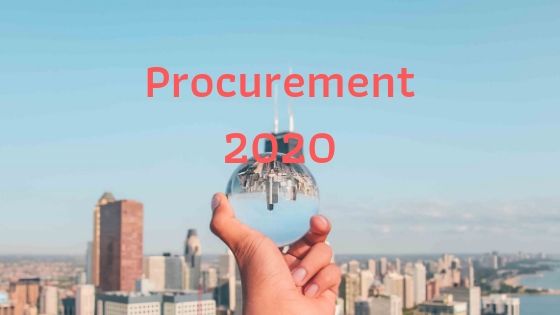McKinsey’s global survey of chief procurement officers suggests that the role of purchasing at many companies hasn’t evolved much beyond the function’s narrow, transactional roots as a buyer of materials, components, and services.
But that’s all about to change.
In its Procurement 2020 Action Plan, Gartner predicts a major evolution in how procurement works in and with the rest of the organisation.
The biggest shift is this: procurement teams will take on more high-value work.
For example, experienced category managers will focus their efforts on top-tier buys and spend more time crafting and managing strategies. Engaging with and influencing stakeholders will become more important than ever. And leading procurement teams will use their insights to challenge and enhance business activities, all the way through to how an organisation delivers products or services to market.
What we’re talking about here is procurement extending its influence within an organisation by closely linking its activities to those of its internal customers, and other functional groups, in order to explore new ways to add value.
This shift willchange the very core of how organisations look at procurement as a function. Consulting firm EY predicts that leading procurement functions will become more influential in contributing to the overall organisational strategy, growth objectives and competitive advantage.
Digital tools and machine-learning technologies will be transformative in making this work. Procurement will be able to use automated technologies to classify and categorise spending, providing full transparency and the ability to make data-driven strategic decisions. This enhanced transparency can drive substantial bottom-line savings by enabling procurement to identify cost-saving and process optimisation opportunities.
What does this mean for the rest of the business?
Essentially, business functions will gain more control over sourcing.
Experts predict that procurement will give up some of its control over sourcing, with the business gaining more responsibility. As a result, business units will own more of the supplier partnerships and face the consequences if things go wrong.
However, this doesn’t put procurement out of a job. Instead, procurement professionals need to enhance their process expertise, training and coaching capabilities to help business partners do the right thing. Leading procurement professionals will simultaneously upgrade their procurement skills and explore clever ways to connect employees across the organisation in a common purpose.
New tools and processes will be required to make it easier for business partners to source and manage suppliers with little intervention on the ground. However, procurement will need to be on hand to provide purchasing guidance where required, such as how to evaluate quotes and tenders.
Recap
Decentralised sourcing and a more strategic approach are the biggest changes coming to procurement in 2020. To prepare for this, procurement teams need explore how they can build the skills into their team. Speak to us to find out how we can help. Ready to enhance your skills now? Check out our short courses for procurement and find out the procurement trends that you should be preparing for over the next year.






